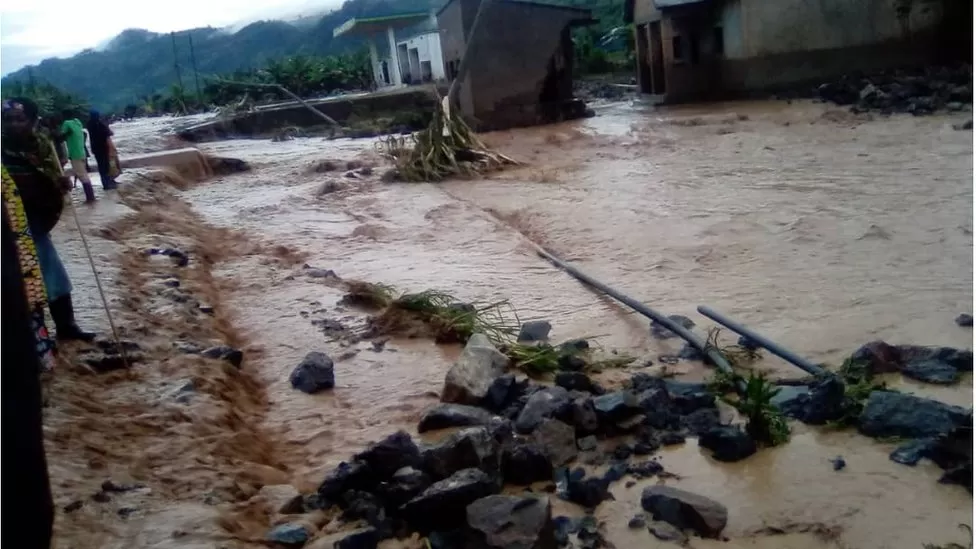At least 130 people have died after floods and landslides hit Rwanda’s northern and western provinces, authorities say.
The rains hit at night when many people were asleep – an official told the BBC this is one reason why so many died.
The five-year-old daughter of Claudette Nyiraneza was among them.
“We could not save my daughter under the rubble until morning,” she told the BBC, adding that neighbours eventually helped retrieve her body.
Local governor François Habitegeko said many houses had collapsed on people.
He said that main roads in the area “are not usable because of landslides”.
Rwanda’s public broadcaster RBA reports that the casualty numbers are expected to increase as floodwaters continue to rise.
Rwanda’s president offered his condolences to those who have been affected. His statement also added that residents were being evacuated from “affected and high-risk areas”.
The government’s main priority now is to “reach every house that has been damaged to ensure we can rescue any person who may be trapped”, the Reuters news agency quotes Mr Habitegeko as saying.
Relief efforts have already started, “including helping to bury victims of the disaster and providing supplies to those whose homes were destroyed,” a government minister for emergencies, Marie Solange Kayisire, told AFP
Africa Live Page: For news updates from around the continent
The heavy rains pounded Rwanda “all night” and more downpours are expected throughout the month, authorities say.
Heavy rains and consequent damage and casualties between March and May are commonplace in Rwanda, but the deluge on Tuesday night was unusually strong and long-lasting.
This is the worst flooding Rwanda has seen since May 2020 when around 80 people died.
Deaths have also been reported in neighbouring Uganda, where six people have died after landslides, the Ugandan Red Cross says.
Rwanda’s weather authority is linking the unusual rains seen in recent years to climate change.
Many factors contribute to flooding, but a warming atmosphere caused by climate change makes extreme rainfall more likely.
The world has already warmed by about 1.2C since the industrial era began and temperatures will keep rising unless governments around the world make steep cuts to emissions.
